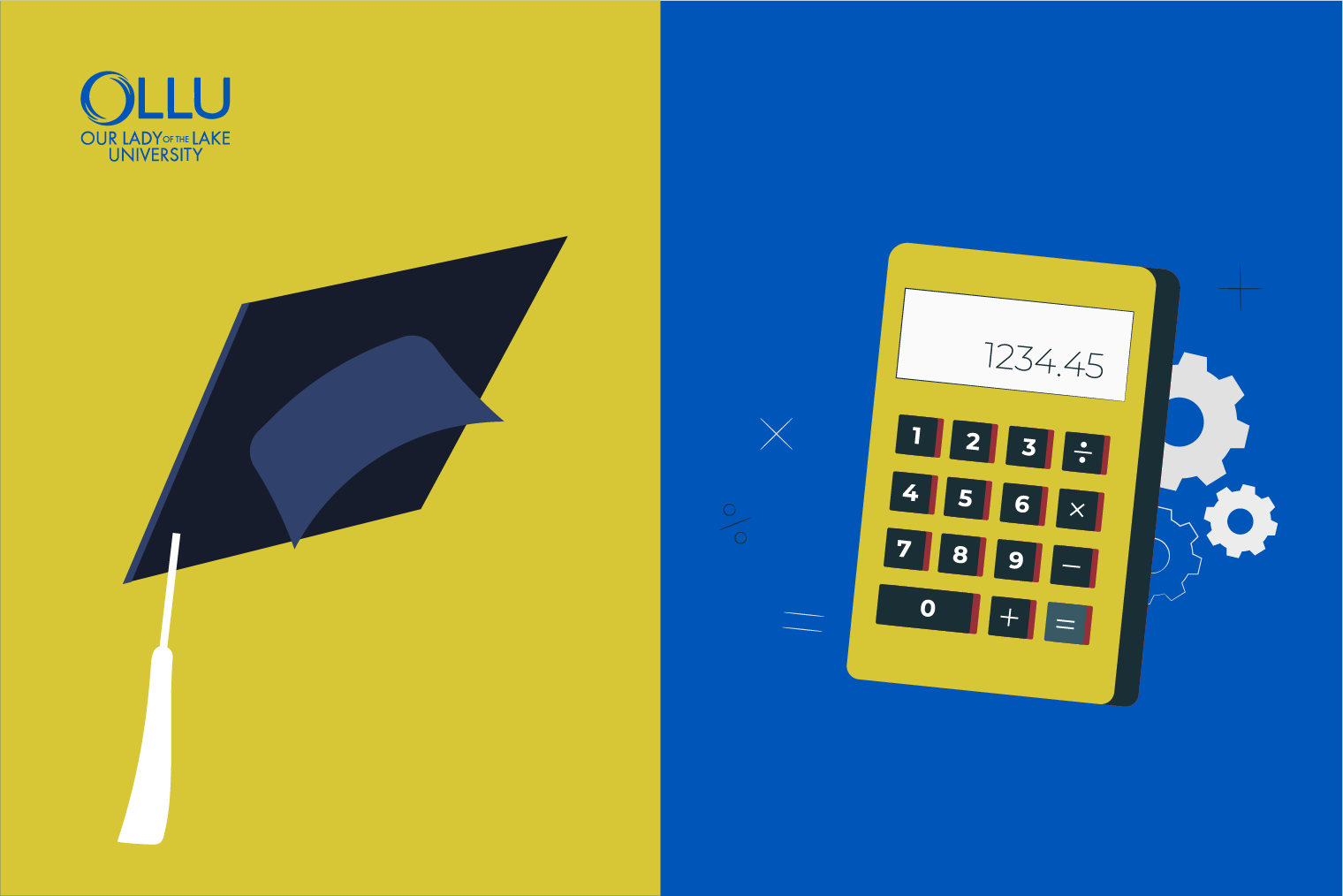MBA vs. Master's in Accounting: Understanding the Key Differences
Nov 20, 2023

In the world of higher education and career advancement, the choice between pursuing a Master of Business Administration (MBA) or a Master's in Accounting can be a pivotal decision. The "MBA vs. Master's in Accounting" debate has become increasingly relevant in recent years as individuals seek to fine-tune their expertise and skills to meet the evolving demands of the business and financial landscape.
Both programs offer unique advantages and cater to distinct career aspirations. It is crucial to go through the key differences that set these two educational paths apart, enabling prospective students to align their academic pursuits with their professional ambitions. This article will explore the distinguishing features of an MBA and a Master's in Accounting, shedding light on the essential considerations that can help individuals decide their future academic and career paths.
Understanding the Basics
When contemplating the choice between an MBA and a Master's in Accounting, it's vital to establish a foundational understanding of these graduate degrees. Delving into their distinct features and potential advantages is essential to make an informed decision.
An MBA represents a versatile program that provides a holistic education in various aspects of business and management, making it a sought-after qualification for professionals seeking career advancement, leadership roles, or entrepreneurial pursuits. Conversely, a Master's in Accounting is a specialized program focused on accounting principles, taxation, and financial reporting. This degree caters to individuals with a clear career path in accounting, such as becoming a Certified Public Accountant (CPA).
Master's in Business Administration
An MBA provides a comprehensive education in business and management. MBA graduates are known for their versatility and ability to adapt and excel in diverse industries and roles. This program is a popular choice for those aiming for leadership positions, career advancement, entrepreneurship, or even a shift into a new field. The MBA's focus on leadership, problem-solving, and strategic thinking makes it a powerful credential in the corporate world.
Master's in Accounting
A Master's in Accounting is a specialized accounting and financial reporting degree. Accounting graduates often pursue careers as certified public accountants (CPAs), auditors, forensic accountants, or financial analysts. A Master's in Accounting equips students with the specific knowledge and skills required to excel in accounting-related roles.
Curriculum Differences
One of the most significant distinctions between pursuing an MBA and a Master's in Accounting lies in their curricula. While both programs deliver a strong foundation in business, they diverge significantly in course content and focus.
Master's in Business Administration
An MBA curriculum is designed to provide a well-rounded education in business and management, covering various subjects such as finance, marketing, human resources, strategy, and leadership. Students gain exposure to multiple disciplines, allowing them to develop versatile skill sets and competencies.
Courses often involve case studies, group projects, and real-world simulations to promote critical thinking and decision-making abilities. The curriculum typically encourages students to explore diverse aspects of the business world, fostering adaptability and valuable leadership capabilities in a broad range of professional settings.
Master's in Accounting
On the other hand, a Master's in Accounting curriculum is highly specialized, focusing primarily on accounting principles, auditing, taxation, and financial analysis. Students in this program delve deeply into the technical and regulatory aspects of accounting, preparing them for careers in the field.
Coursework is tailored to build expertise in areas critical to accounting professionals, such as Generally Accepted Accounting Principles (GAAP) and tax codes. The curriculum provides a strong foundation for the CPA exam. This focused approach sets it apart from the broader scope of an MBA program.
Career Opportunities

The choice between a Master's in Business Administration (MBA) and a Master's in Accounting significantly influences the career opportunities available to graduates. Let's explore the diverse paths each degree can open:
Master's in Business Administration
An MBA degree offers various career opportunities in multiple sectors and industries. MBA graduates can explore leadership, management, and strategy roles across businesses and organizations. Potential career paths include:
- Business Consultant: Advising companies on strategy, operations, and management.
- Marketing Manager: Overseeing marketing campaigns, market research, and product development.
- Financial Analyst: Analyzing financial data to provide investment recommendations.
- Entrepreneur: Starting and managing one's business venture.
- Operations Manager: Ensuring efficient production and service delivery.
- General Manager: Leading a department or organization with diverse responsibilities.
- Human Resources Manager: Managing employee recruitment, training, and benefits.
- Chief Executive Officer (CEO): Heading an entire company as its top executive.
Master's in Accounting
A Master's in Accounting degree is tailored for those aspiring to excel in the accounting and finance sector. Graduates often find opportunities in specialized roles such as:
- Certified Public Accountant (CPA): Conducting audits, tax planning, and financial reporting for clients.
- Auditor: Examining financial statements and internal controls for accuracy and compliance.
- Forensic Accountant: Investigating financial irregularities, fraud, and disputes.
- Financial Analyst: Evaluating investment opportunities, portfolio management, and risk assessment.
- Tax Consultant: Providing expert advice on tax planning and compliance.
- Corporate Controller: Overseeing financial operations and compliance within an organization.
- Risk Manager: Identifying and mitigating financial risks within a company.
- Financial Planner: Assisting individuals and organizations in managing their finances effectively.
Skills and Traits for Success
Success in both an MBA program and a Master's in Accounting program hinges on possessing specific skills and traits that are essential for thriving in these respective fields:
Master's in Business Administration
An MBA program hones a unique set of skills and traits that are critical for success in the business world, including:
- Leadership
- Critical thinking
- Communication
- Adaptability
- Strategic vision.
- Networking
- Problem-solving
- Time management
Master's in Accounting
For those pursuing a Master's in Accounting, a distinct set of skills and traits is instrumental for success in the accounting and finance field:
- Attention to detail
- Analytical skills
- Ethical judgment
- Numerical proficiency
- Regulatory knowledge
- Problem-solving
- Organizational skills
- Interpersonal skills
Financial Considerations
In assessing the financial aspects of choosing between an MBA and a Master's in Accounting, examining expected salaries is essential.
MBA graduates typically earn competitive salaries, with potential high-paying roles in sectors like finance, consulting, and technology. The average annual pay for MBA jobs in the United States is $137,407, underlining the potential for substantial income.
Meanwhile, for graduates in accounting the average annual pay is $42,275. Furthermore, accounting graduates can increase their earning potential by passing the CPA exam and becoming licensed. The average annual salary for CPAs in the US is $87,421.
Future Outlook
According to data from the Bureau of Labor Statistics (BLS), the job outlook for both MBA and Master's in Accounting graduates appears promising. Overall employment in business and financial occupations is projected to grow faster than the average for all occupations between 2022 and 2032, with approximately 911,400 job openings annually within these sectors.
This positive outlook results from employment expansion and the necessity to replace workers who permanently exit these occupations. This suggests that individuals holding either an MBA or a Master's in Accounting can expect a range of opportunities in the coming decade, making both degrees valuable assets for those seeking to pursue or advance their careers in these domains.
Key Factors to Consider When Choosing a Degree
Several critical factors should guide your choice between an MBA and a Master's in Accounting:
Career goals and interests: Consider your desired career path and personal interests.
Specialization vs. versatility: Decide whether you prefer specialized accounting knowledge or a broader skill set for various industries.
Salary expectations: Weigh your short-term salary goals and long-term income potential.
Curriculum and course content: Examine the specific program's courses and curriculum.
Certifications and licensures: Consider your willingness to pursue professional certifications.
Location and lifestyle: Assess the program's location and alignment with your lifestyle preferences.
Return on investment (ROI): Analyze the program's cost against expected earning potential and career opportunities.
Considering these factors, you can make an informed decision that aligns with your career aspirations, lifestyle, and financial goals.
Bottom Line
Your choice between pursuing an MBA or a Master's in Accounting should reflect your aspirations, interests, and financial objectives. Whether you seek the versatility of an MBA or the specialization of a Master's in Accounting, both paths offer unique opportunities to excel in the business and financial world.
If you're ready to take the next step in your education, consider the Master of Business Administration and Master of Science in Accounting programs at OLLU. Explore OLLU's offerings to find the program that best suits your needs and ambitions to help you thrive in your chosen field.
Frequently Asked Questions (FAQs)
Is an MBA worth it for accountants?
It can be worthwhile, especially for those seeking leadership roles in finance or broader business positions.
What is a Master's in Accounting called?
It's commonly referred to as a Master's in Accounting but can also be known as a Master of Science in Accounting (MS Accounting).
Do accountants need a master's degree?
It's not mandatory for all accountants, but a Master's in Accounting or a related degree can enhance career opportunities and is often required for CPA licensure.
Which degree is more suitable for individuals looking to specialize in accounting and finance careers?
A Master's in Accounting is more suitable in this case as it offers specialized knowledge for accounting and finance roles.
Which degree is better for individuals aspiring to become Certified Public Accountants (CPAs)?
A Master's in Accounting is typically better suited for aspiring CPAs, as it aligns with the educational requirements and knowledge needed for the CPA exam.